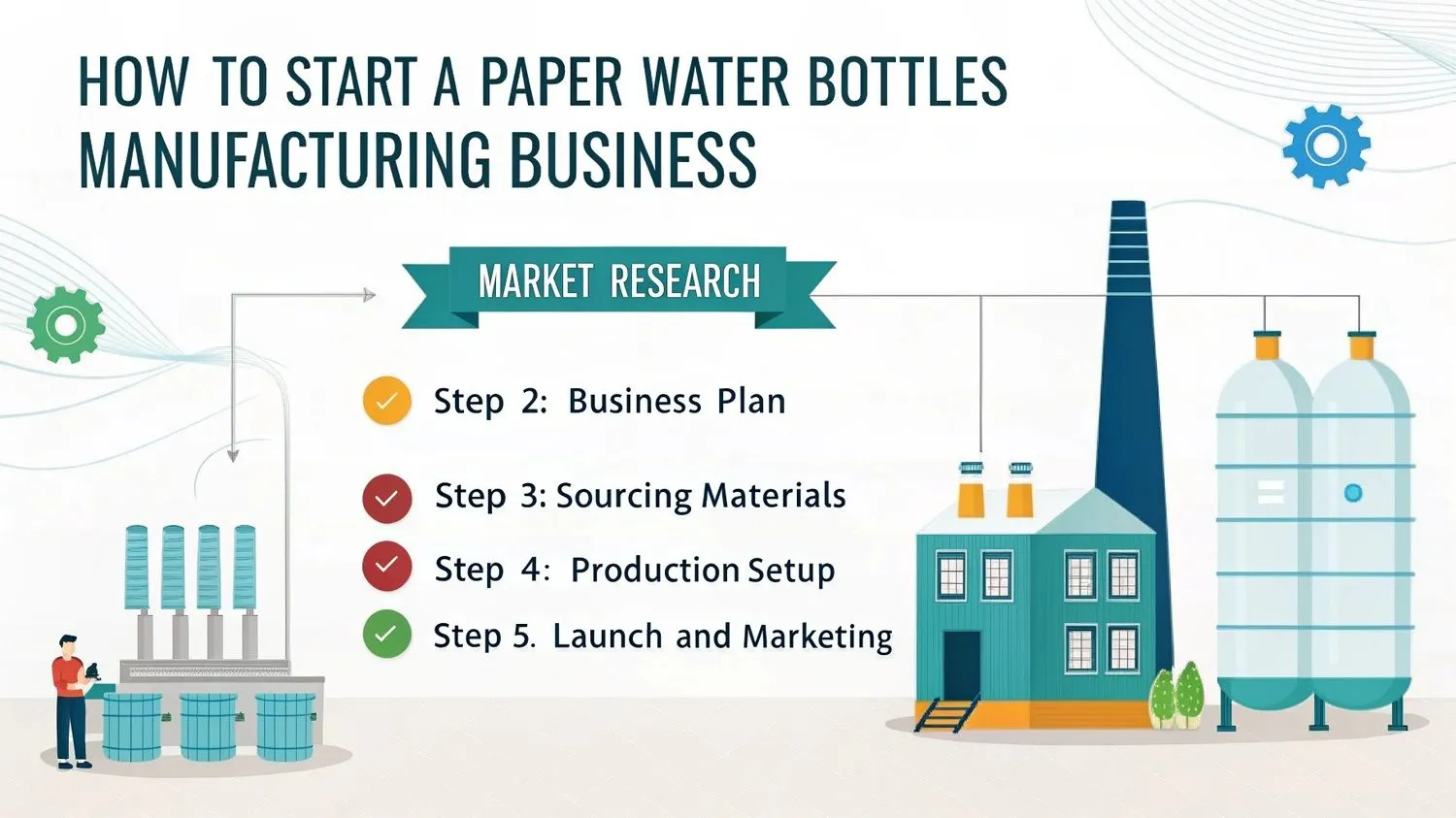Alum is a chemical compound that has many uses, from paper production to water purification. Alum, called potassium aluminum sulfate or ammonium aluminum sulfate depending on the type, provides powerful antiseptic and coagulating properties. Entrepreneurs in the chemical sector should consider manufacturing alum because demand remains strong. Manufacturers use alum in municipal water treatment, industrial effluent treatment, textile dyeing, and cosmetics.
Alum demand continues to be driven by the global shift towards clean water, stricter environmental norms and growth in paper production and textile production. Alum manufacturing is a good option for startups and MSMEs because it offers a simple production process, constant market demand and growth opportunities both domestically and internationally.
Contents
For more information check our Handbooks
Understanding What is Alum
Alum is an astringent, antibacterial substance that has a colorless crystalline structure. Most common types are:
- Potassium Alum – Also known as Potash Alum, it is used in cosmetics and food processing.
- Ammonium Alum is widely used in textile dyeing, tanning and tannining.
- Soda Alum is used in the paper industry.
The primary function of alum in water purification is to coagulate impurities, making them easier to remove. Alum is a chemical that can be used in municipal corporations and industrial treatment plants because of this characteristic.
Market Outlook
Alum is in high demand both in developed and emerging economies. Here is a summary of trends in India and globally:
| Region/Market | Market Size (by 2024) | Forecast (2029). | CAGR (2024-2029). | Key Demand Drivers |
| Global | USD 780 Million | US $1.05 billion | ~6% | Water treatment, paper production, textile processing and pharmaceuticals |
| India | USD 120 Million | USD 170 Million | ~7% | Rural sanitation projects, textile hubs and growing paper industries, urban water supply projects |
Key Insights
- Infrastructure upgrades in water systems in developing countries, in particular, are sustaining the global demand.
- Government-led initiatives in India, such as Jal Jeevan Mission or Swachh Bharati Abhiyan, drive consumption of municipal and rural water projects.
- The textile belts of Gujarat, Maharashtra, and Tamil Nadu consume large quantities of ammonium alum.
Related: How to Start a Profitable Alum Manufacturing Business
Applications and Demand Drivers
Alum’s diverse applications ensure that the market is stable and grows. Alum helps water treatment facilities remove suspended particles, ensuring cleaner drinking water, and it serves as a sizing agent in paper production to enhance texture and printability. Textiles use alum to fix dyes, and the leather tanning sector uses it to prepare hides before processing.
It also tightens the skin. Alum is used in traditional medicine, food processing, and even for cosmetics. Its preservative properties and refinement capabilities are very useful. The variety of applications spreads the demand across many industries and reduces the risk of dependence on one market.
Manufacturing Process Overview
Alum is a relatively easy chemical product to manufacture, so it’s accessible to small and medium-scale entrepreneurs.
- Raw Material Preparation
Producers make alumina mainly from bauxite and aluminum hydroxide, adding potassium or ammonium sulfate; some processes also use sulfuric acid. - Reaction Process
In reactors, raw materials are dissolved in a controlled temperature and under agitation. This results in the formation of an alum-solution. - Crystallization
Cooling the alum solution will encourage crystallization. The crystals can grow until they reach the desired size. - Separation of the Drying and Separation
To remove impurities, the crystals are washed and dried after being separated from the liquid. - Packaging
The dried alum comes in bags that are moisture-proof for transport and storage.
Modern plants incorporate continuous processing units and filtration systems to ensure high purity.
For more detailed information, check out our Project Reports on Ferric Alum – Manufacturing Plant
Startups have many opportunities
Alum manufacturing offers many opportunities.
- Increased Municipal Demand: Due to urbanization and the scarcity of water, municipal bodies are increasing their investment in treatment facilities.
- Industrial Expansion: The growth of paper mills and textile processing units as well as leather tanning units, continues to increase industrial alum demand.
- Export Potential: Alum is imported by many developing countries, including those in Africa, Southeast Asia and Latin America, for the treatment of water. This presents a lucrative opportunity to export.
Startups may also want to explore niche markets, such as high-purity alum used in cosmetics and pharmaceutical-grade products that command premium prices.
For more information, check out this related video
Sustainability and Challenges
While the outlook for the alum market is positive, there are certain challenges that alum producers face, such as fluctuating prices of raw materials and environmental concerns about production waste. It is important to comply with pollution control standards.
Sustainability trends create opportunities for businesses.
- Renewable energy used in manufacturing
- Recycle process water to reduce waste.
- Eco-friendly packaging of industrial chemicals.
Companies that adopt sustainable practices better satisfy global buyers’ needs and stand out in the marketplace.
Find the Best Idea for Yourself With our Startup Selector Tool
The conclusion of the article is:
Alum production is a stable and profitable industry with many applications, including water treatment, textiles, and paper. As governments and industries prioritize clean water and sustainable practices, demand will rise in domestic and international markets.
Niir Project Consultancy Services prepares detailed techno-economic feasibility reports for alum production and other industries. The reports contain detailed manufacturing processes and raw materials requirements, as well as plant layouts and financial projections. NPCS assists entrepreneurs in assessing the feasibility of setting-up new industries. They also provide them with the necessary technical and market insight to ensure success.
Frequently Asked Question
What is alum and how is it produced?
Alum is a double-sulfate compound commonly made from bauxite or aluminium-bearing ore. Manufacturers dissolve the ore in sulfuric acid, filter the solution, add the required sulfate, then cool it to form crystals. The crystals are dried and packed for industrial use.
What are the main applications of alum?
Alum is widely used in water-treatment plants for coagulation, in textile units as a dye-fixing agent, and in leather and paper industries for processing. It’s also used in detergents, cosmetics and a range of chemical formulations, so the market stays stable throughout the year.
What materials and equipment are needed for an alum-manufacturing unit?
You need bauxite or aluminium hydroxide, sulfuric acid, and a sulfate source such as potassium sulfate. A small plant usually includes reaction tanks, filtration units, crystallizers, dryers and basic packing machinery. Clean water supply and proper safety equipment are also important.
What factors decide the quality and success of an alum-manufacturing business?
Quality depends on the purity of raw materials, controlled reaction conditions and proper crystallization. For business success, steady demand from water-treatment plants, textile mills and chemical suppliers is key. Competitive pricing, compliance with environmental rules and consistent production also help the business grow.















